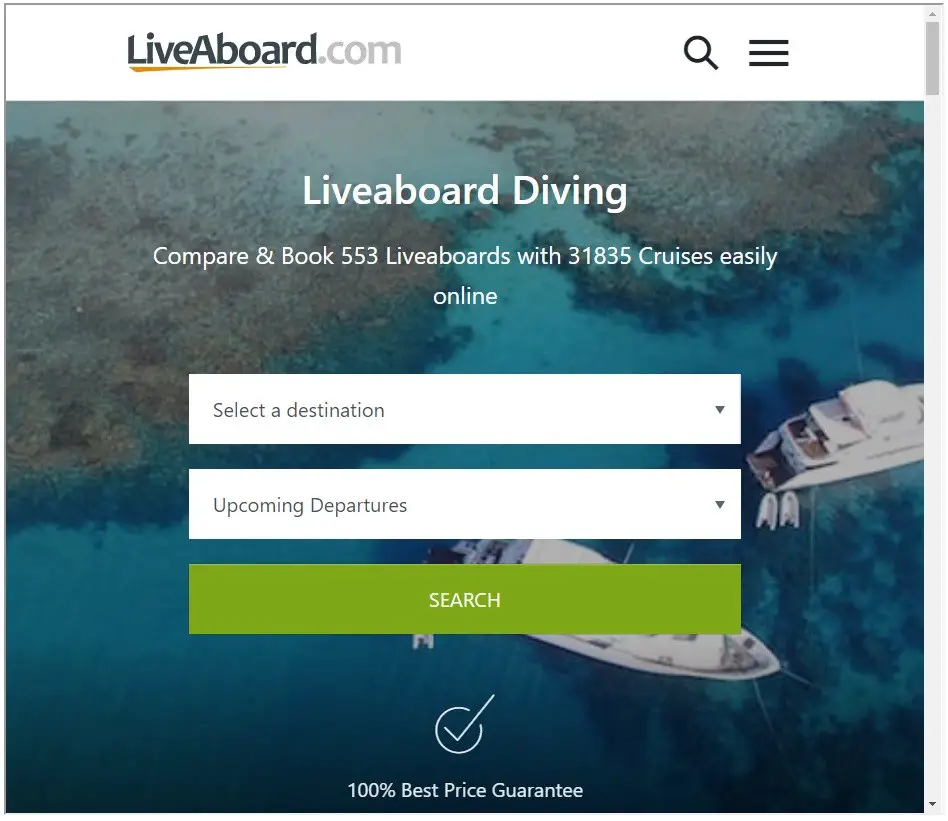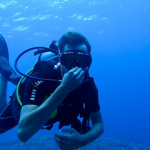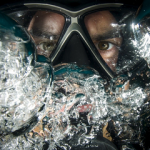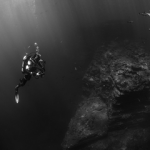
Even as a seasoned diver when you’re put into the wrong situation this can still cause you anxiety. I found this out at 47 metres down when I got a bad case of nitrogen narcosis.
So what helps with anxiety during scuba diving?
- Use breathing exercises.
- Accept you have a problem.
- Use visualisation techniques or NLP.
- Positive self-talk.
- Subliminal messaging.
- Meditation.
- Hypnotherapy.
- Try the Panic Miracle.
The above strategies will help you to reduce your stress and anxiety before and during a dive? Which will help you to enjoy scuba diving so you can relax underwater.
The best way to do more diving and to help you overcome anxiety when you’re scuba diving, is to book yourself on a scuba diving liveaboard. You can check the latest and best deals on liveaboards using the following window:
Let’s take a look at each of these in turn in more detail
1. Use breathing exercises to help you relax before you dive
If you practice breathing exercises before a dive will help you to relax. Slow and controlled breathing will reduce anxiety and calm your mind.
2. Accept you have a problem
The first step to solving any problem and what helps with anxiety during scuba diving is to accept you have a problem in the first place. Without this first step, you can’t do anything to make things better.
But then if you’re reading this article, then I’m guessing you’ve already made this first step.
3. Use visualisation techniques or NLP
Visualisation techniques can be extremely powerful. You’ll find that professional athletes and successful business people, among others, use visualisation techniques.
The technique is contained in Neuro Linguistic Programming or NLP. Using this relatively simple technique, allows your mind to learn new skills and create positive imagery through the mind’s eye.
Taking the example above about the difficulty or anxiousness towards mask clearing, you could use visualisation or NLP to overcome the fear of removing your scuba mask underwater.
To do this, you’d visualise each step whilst remaining calm and relaxed. You should then repeat the process many times over until your mind has learned how to calmly and fearlessly remove your mask. If it’s not mask clearing for you, this technique will work with any form of anxiety.
One of the other big fears for people starting out to learn scuba diving is putting their head underwater in the first place. Somehow they feel claustrophobic with a mask over their face and having to breath ‘on-demand‘ using a mouth piece or ‘regulator‘. Visualisation techniques can help with this fear too.
4. Positive self-talk
Positive self talk is similar to visualisation in that you are using self-help to overcome your fear or anxiety. You’ll be using your inner voice to talk yourself through the anxiety.
If you feel anxious underwater, change your thoughts to something nice and calming. If you have children for example, think about them. Or in a similar way to how I explained about distracting yourself above, distract your mind away from the anxious thoughts.
Control plays a big part in anxiety, which means you should remind yourself that you are safe and in control of the situation. Focus on your surroundings and remind yourself of how amazing it is to be underwater and scuba diving!

5. Subliminal messaging

If you’re looking for other positive solutions on what helps with anxiety during scuba diving, subliminal messaging is a method used to talk directly to the subconscious mind.
It was once used in advertising until it was banned due to its power and success. If subliminal message can convince you to buy something, it can certainly help you to overcome a fear or anxiety towards scuba diving.
Statistical data back up the findings
“On an Experiment done by Radboud University’s Department of Social Psychology (Netherlands), subjects where exposed to subliminal messages of a specific brand of beverage (Lipton Ice Tea) for 1/45 of a second during a series of tests on a computer. The statistics showed a dramatic increase of 69% in choosing the subliminally induced brand for the subjects exposed to the messages, over the control group (subjects not exposed).”
(Karremans, Stoebe, Claus) – See Mindzoom for more information
Mindzoom is something I use on a daily basis, but then I’m at my computer screen a lot so it works well for me.
How Mindzoom works is you install the Mindzoom software on your computer. This software places literally thousands of positive affirmations directly to your brain, by flashing them up on your screen subliminally.
Even as I write this article, I have the positive affirmations flashing on my screen. These messages are almost invisible to the conscious mind, but you know they are there.
But in having these positive affirmations flash up on your computer screen embeds them in your subconscious mind.
“Over 18000 a day…”
“I work constantly on my computer, I’ve set my affirmation speed and receiving over 18000 affirmations a day. WOW!
I’m recommending mindzoom to everyone. Thanks again. This software is life changing!“
Saul Hudson – on Mindzoom
The great thing about Mindzoom is its flexibility. You can tailor it to suit your own personal circumstances. Click this link to find out more and to get the up to date price on Mindzoom.
6. Meditation is good for relaxation
Doing meditation is a great way to relax and unwind. If you’re an anxious person, it might be worthwhile looking into the benefits of meditation.
This should have an impact on your life as a whole in a positive way, but more importantly for scuba diving, it should also reduce your anxiety levels for diving too.
Meditation will also help you to focus on your breathing. As already discussed, one of the most powerful things you can do while scuba diving is to control your breathing. This is not only important for buoyancy control, but you can use it to stay calm too.
When you’re diving and just like you would breath when in meditation, remind yourself to focus on your inhalations and exhalations underwater.
When you’re meditating you should breath slowly and intentionally, which is the same when you’re diving too.
7. Hypnotherapy is a powerful technique to help reprogram your brain and lower anxiety
Hypnotherapy has been around for 100’s of years and can be achieved either through seeking help from an expert hypnotherapist or by doing self-hypnosis. Both work and both can be used to help you with your fears and anxieties.
Hypnotherapy works by helping your mind and subconscious to learn new responses and behaviors to situations that previously caused an irrational fear response.
If you don’t have the time nor money to seek the help of a professional hypnotherapist near you, you may wish to take a look at the various hypnosis audios here: MP3 Hypnosis audios.
8. Try the Panic Miracle
If you want another solution for what helps with anxiety during scuba diving, the Panic Miracle is an option.
The Panic Miracle was created by a former severe anxiety sufferer. It will show you how to treat your panic attacks and anxiety and to help you regain your self confidence.
“I had a very troublesome anxiety disorder along with severe agoraphobia. I took seizure meds to prevent passing out.
He goes on to say:
I was really deep in an horrible, unbearable condition, and you have truly saved my life. I did not realize what was going on…but your program made me see that I was not the only one! It has now been 10 months since I first implemented your 3-step approach, and I haven’t had a SINGLE panic bout since. The constant anxiety I suffered from for more than 8 years had simply disappeared. I go out of the house without fear whenever I please. The feeling is simply remarkable! Thank you so much, Chris, for everything you have done for me. “
Mike Oversby- U.S.A testimony about the Panic Miracle
You may want to overcome your anxiety towards scuba diving to be able to join your partner who’s already a scuba diver. To be able to enjoy this sport with your loved one would be great. But don’t be pushed into it.
This great tool can be used to treat all types of anxiety, be it a fear of scuba diving or of water itself (Aquaphobia). Overcome your fears and anxiety of scuba diving so you can truly enjoy this fantastic sport.
Click this link to find out more and to get the up to date price on the Panic Miracle.
What are the benefits of reducing your anxiety levels when scuba diving?

There are many benefits to reducing your anxiety levels when you scuba dive. These include the following:
- You will enjoy your diving much more.
- You’ll see more when you’re underwater. If you are too busy being anxious, you tend to miss the obvious things around you.
- You will be better with your air consumption. If you are anxious your air consumption can be off the scale.
- Your buoyancy control will improve.
- Others around you will be able to relax too. If you are anxious, your buddy will know and wont be able to relax either. So if you can begin to relax more when you’re diving, your buddy will also be able to relax so you both enjoy the dive together.
How do you get over a panic when scuba diving?
If you have a panic when you’re scuba diving stop what you are doing and get the attention of your dive buddy.
It’s at this point when your diver training becomes important so remember to keep breathing. Use hand signals to indicate your problem to your buddy. If necessary abort the dive and ascend to the surface.
I hope you enjoyed this article about what helps with anxiety during scuba diving
I’d love to hear from you. Tell us about your adventures of diving and snorkeling, in the comments below. Please also share your photos. Either from your underwater cameras or videos from your waterproof Gopro’s!
If this article hasn’t answered all of your questions. If you have more questions either about snorkeling or scuba diving (or specifically about what helps with anxiety during scuba diving), please comment below with your questions.
There will also be many more articles about scuba diving (and snorkeling) for you to read and learn about these fabulous sports.
Have fun and be safe!




